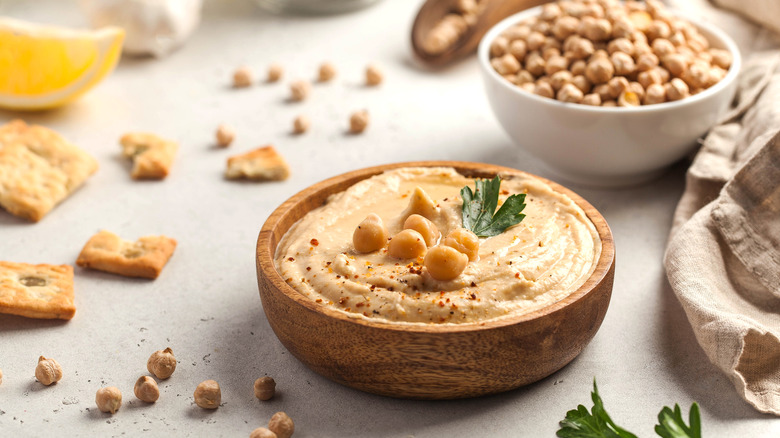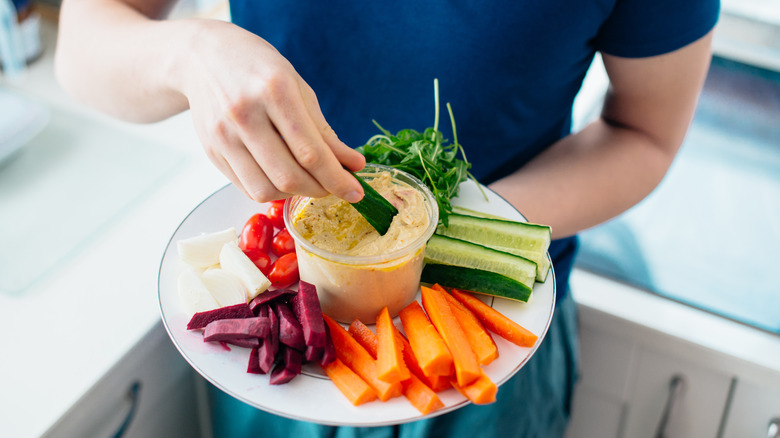Is Hummus Actually Healthy?
Hummus is a Middle Eastern dish made by blending tahini, chickpeas, oil, lemon juice, and salt. It can be found in most grocery stores and comes in a variety of flavors. But is this dip actually good for you? Here's what you should know.
According to Healthline, hummus "has been linked to many impressive health and nutritional benefits" because of its impressive nutrient profile. It contains many vitamins and minerals including manganese, copper, folate, magnesium, phosphorus, thiamin, vitamin B6, and potassium. Hummus is also a good source of iron, which helps with growth and development, as well as zinc, which keeps the immune system strong.
This dip provides 7.9 grams of plant-based protein per serving, making it an excellent protein option for vegans and vegetarians. Iron, folate, phosphorus, and B vitamins can all be difficult for people on plant-based diets to consume enough of, so hummus is a great addition to those diets. Because of its nutrient profile, hummus can help fight inflammation, reduce the risk of heart disease, and control blood sugar levels.
Hummus is a good source of dietary fiber
One can of chickpeas, which is the main ingredient in hummus, contains about 10 grams of dietary fiber. That's about 40% of the daily recommended intake for adults (via Health). Fiber helps promote healthy digestion and can keep you full after eating. In fact, people who regularly consume chickpeas are 53% less likely to be obese, according to a 2016 study quoted by Health.
The best way to add hummus into your diet is to make it at home. Simple blend cooked chickpeas, tahini, olive oil, lemon juice, and a pinch of salt in a food processor until smooth. You can add other ingredients to boost the flavor if you would like, including roasted peppers, avocado, pumpkin, black beans, or whatever else sounds good. Hummus can be found in many grocery stores. This is an easy way to add this dip into your diet, but be sure to read the nutritional label before purchasing. Watch out for added sodium, preservatives, or inflammatory oils like soybean oil.
Hummus can be enjoyed in many ways. Dip pita bread or vegetables in it as a light snack, add a spoonful to salads, or stir it into soup to add thickness and creaminess. It can even be used as a mayonnaise alternative on sandwiches. However you enjoy it, you'll know you're getting a healthy and nutrient-packed snack.


